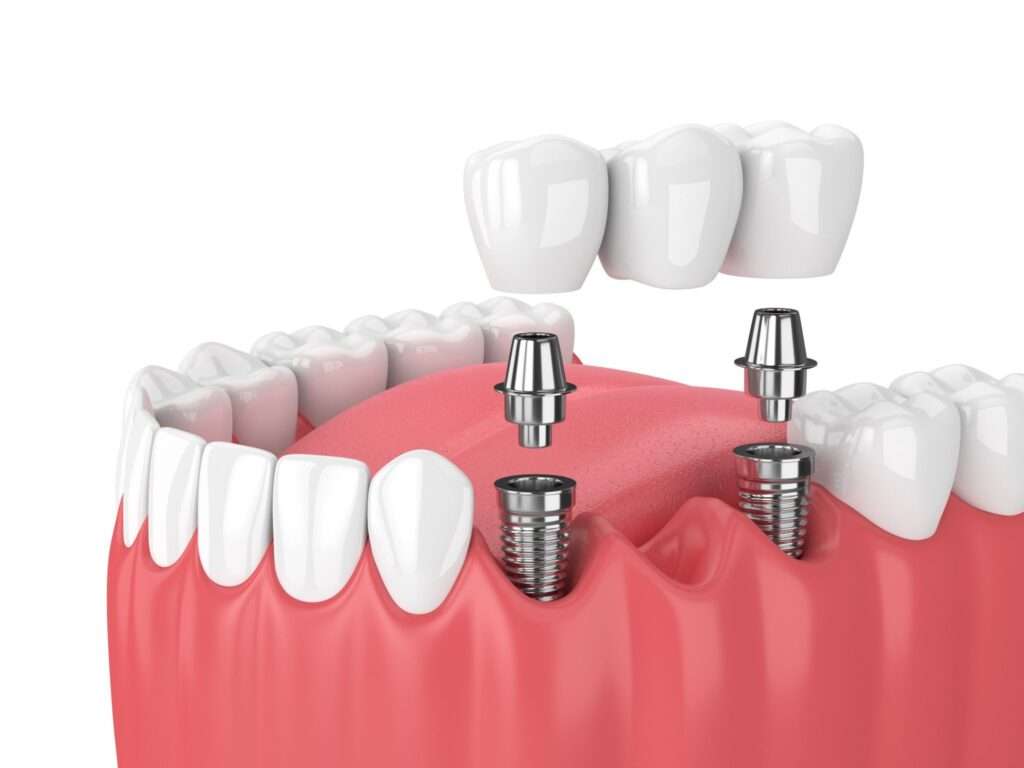For replacing one or more missing or decayed teeth, dental implants are a popular option.
Mini dental implants are newer dental implants that use a one-piece screw with a diameter of fewer than 3 millimeters (mm) — about 1/10 of an inch.
In this article, Dr. Rajat Sachdeva, the excellent dentist in Ashok Vihar, Delhi has mentioned everything you need to know about mini dental implants.
Traditional dental implant screws have a diameter of 3.25 to 5 mm and are made up of two pieces (about 0.12 to 0.2 inches across).
Mini dental implants are a good alternative for people who can’t get traditional dental implants. However, they aren’t appropriate for all cases of tooth loss.
Learn more about the benefits of mini dental implants, who may or may not be eligible, and the various options available. Also, figure out if they’re a good fit for you.
Table of Contents
What are the advantages of dental implants that are only a few millimeters long?
According to Dr. Rajat Sachdeva, who has among the best dental clinics in Ashok Vihar, Mini dental implants can be used to replace a single tooth, multiple teeth, or dentures.
These implants may provide several advantages, including:
- Less invasive surgery: A localized anesthetic can be used to place mini dental implants. The procedure is much less invasive and possibly less painful than conventional dental implants.
- Recovery time is shorter: Many people recover faster because of the small size and minimally invasive procedure of placing mini dental implants.
- Less expensive: Mini dental implants can be costly. However, they are frequently less costly than conventional dental implants.
- Less jawbone density is needed: Traditional dental implants necessitate a certain amount of jawbone mass to support their weight. Mini implants are smaller than conventional implants and do not require as much jawbone mass. This makes them an excellent choice for people who have lost jawbone density due to tooth decay, injury, or osteoporosis.
- It can be done without bone grafting: For traditional dental implants, people with low jaw mass typically require jawbone grafting before implants can be placed. It can take up to a year for bone grafting to heal fully. Bone grafts can be avoided by using mini dental implants.
- Faster outcomes: Traditional dental implants necessitate several visits. This is because traditional dental implant screws cannot be used until the jaw and gums have healed. Replacement teeth for mini dental implants can often be placed the same day as the implant procedure.
- It can be inserted into tighter spaces in your mouth: Mini dental implants are a good option for replacing small teeth, fitting into tight spaces, and people with small jaws.
- It’s easier to install and repair: Mini implants are less painful to place and restore than conventional dental implants because of their small size. More durable than bridges or dentures: Bridges and dentures can help people who have lost teeth. However, they should not be used as a replacement for more permanent solutions such as traditional or mini dental implants.
- Prevents facial failure: A mini implant is implanted inside your jawbone, preserving your teeth and jaw position and size.
Mini dental implants can help you achieve a natural-looking smile.
“Mini implants can give you a more natural-looking smile while also improving your dental health,” says Dr. Rajat Sachdeva from Ashok Vihar.
Who can benefit from mini dental implants?

Mini dental implants aren’t suitable for everyone, especially children or those with a still-developing mouth. This is because, like a nail in a tree, the implant can become encircled by the bone as it grows.
They’re also unsuitable for those who grind their teeth.
Mini dental implants are typically not available to people with certain health conditions, such as:
- diabetes
- vascular disease
- hemophilia and other clotting conditions
- bone disease
- periodontitis
- conditions that impact wound or bone healing
Some lifestyle factors and medications can affect your ability to get mini dental implants, including if you:
- are a smoker
- have limited oral hygiene
- take any anticoagulant medications
- take any medicines that slow down bone healing
- are receiving chemotherapy or radiation
Although mini implants do not necessitate as much jawbone density as conventional implants, they require some bone density. This means that if you have severe tooth decay and bone loss, they might not work. Mini implants may not be able to support people who have receded or damaged gums.
Do mini dental implants come with any drawbacks?
According to Dr. Rajat Sachdeva, the leading dentist, Mini dental implants are often only temporary and are not intended to be permanent replacements for missing teeth.
Orthodontists refer to these implants as temporary anchorage devices because they have replaced traditional headgear, which many people find difficult to wear.
Immediate-loading implants are also known as mini dental implants. This means that the implant is placed as soon as a tooth is extracted, leaving a space for the implant.
This quick procedure can be done simultaneously as tooth extraction, making it more convenient.
However, this also means that they aren’t designed to stay in your mouth for long periods.
A typical implant is only supposed to stay in place for a few months to a few years before being removed.
What is the procedure for placing a mini dental implant?
Dental X-rays are the first step in the process of getting a mini dental implant. The dentist can use these X-rays to see exactly where the implants should be placed.
After the X-rays are finished, the dentist will:
- use a local anesthetic to numb your gums and jaw
- drill a small hole in your jaw
- place the small metal dental impact post into the hole
- secure and tighten the implant post
- attach the replacement tooth to the post
- ensure that the replacement tooth is positioned correctly and secure
Because the threads of the screw grab onto your bone, many mini implants don’t require drilling. Mini implants also don’t need any sutures or stitches.
Depending on your dental needs, the procedure’s exact steps may differ slightly. If you require multiple mini implants, the posts may be placed before attaching any replacement teeth.
How long does it take for a mini dental implant to heal?
Mini implants usually have a quick and painless recovery. Following their mini implant dental method, most people can resume their normal activities within 1 or 2 days.
In many cases, a follow-up appointment is unnecessary.
Following the procedure, you may experience some discomfort and soreness.
Pain can be managed with ice or over-the-counter pain relievers like ibuprofen (Advil). The dentist may prescribe medication to help manage pain in some cases.
“After your mini dental implant procedure, stay away from challenging or sticky foods,” says Dr. Rajat Sachdeva. The implant will be less likely to loosen or be pulled out as a result of this.
Eat soft foods or liquids like soup, smoothies, applesauce, and mashed potatoes as you recover.
The dentist will be able to tell you when you can resume eating a more varied diet.
If you have any unexpected symptoms after the procedure, such as:
- relentless pain
- an implanted tooth that feels loose or falls out
- discomfort that lasts for more than a few days
- numbness within your jaw
Outlook
Mini dental implants should be cared for in the same way that your natural teeth are. They can wear down or decay if you don’t keep your teeth clean.
Brushing, flossing, and getting regular dental checkups are essential for keeping your mini-implant in good shape.
Mini dental implants are intended to be a permanent solution for tooth loss if adequately cared for.
Miniature dental implants have only been around for about 20 years.
It’s too early to say how long a mini implant will last, but it’ll probably last many years before needing repairs or replacement, just like other implants.
ALSO READ





